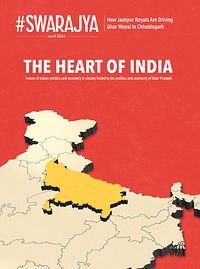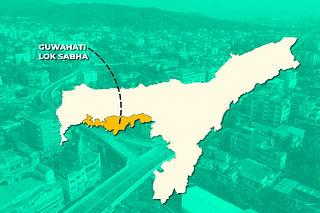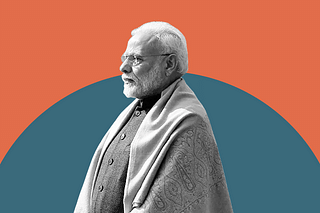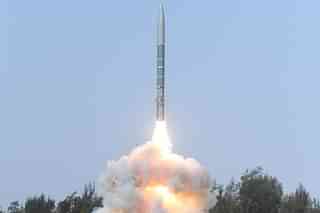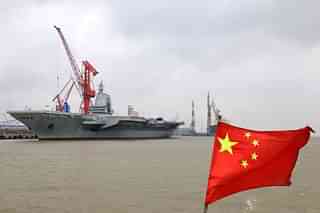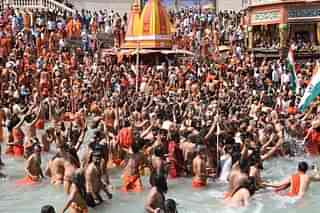Politics
What Modi Can Learn From His Reformist Predecessors
N V Subramanian
Sep 05, 2015, 12:30 PM | Updated Feb 24, 2016, 04:30 PM IST
Save & read from anywhere!
Bookmark stories for easy access on any device or the Swarajya app.
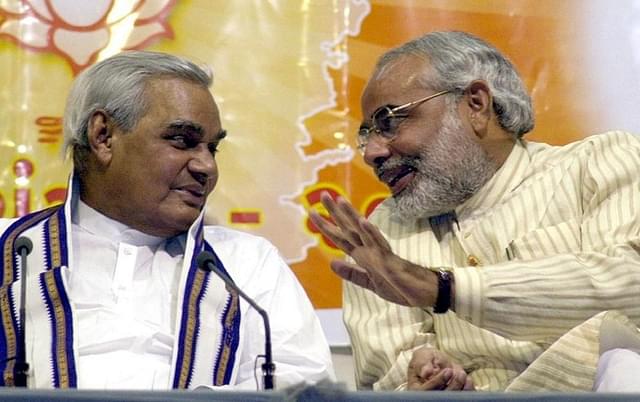
Two lessons Mr Modi can learn from his reformist predecessors – PV Narasimha Rao and AB Vajpayee – are how to be expedient in foreign policy and how to partner with the Opposition such that it does not disrupt the business of the government.
Politics is an art. Two Indian prime ministers in recent decades came close to mastering politics. They were P. V. Narasimha Rao and A. B. Vajpayee. Prime Minister Narendra Modi has much to learn from their successes without being coloured by their share of failures. From Vajpayee especially, Modi has to take lessons in “keeping friends close but enemies closer”.
The phrase was popularized by Michael Corleone’s character in Godfather 2. But it has existed in a slightly altered form since at least 2500 years in the classic work by Sun Tzu called “The Art of War”.
Narasimha Rao and Vajpayee shared some common traits. Their personality differences could scarcely deter their long and old friendship. They instituted between them a sort of Saturday Club where every aspect of life and politics was discussed. Both were profound men and had seen the world from close. They each became prime ministers at testing times for the republic.
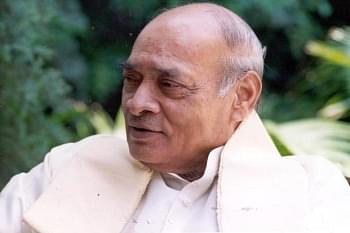
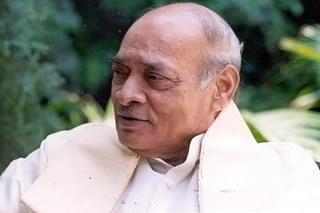
This is their shared destiny with Narendra Modi. Into their respective five and six years of prime ministry, Narasimha Rao and Vajpayee compressed a vast body of achievements as lesser politicians cannot imagine in a lifetime. It is fitting that Narendra Modi should follow in their line as the country’s third reformist prime minister.
When Narasimha Rao became prime minister, the Cold War had ended. But the world was ironically rendered a more unstable place. The collapse of the Soviet Union raised questions in the minds of friends and foes alike about the durability of the multi-religious, multi-lingual Indian Union.
This writer came across several pop theories then about how India would have to cede Kashmir. Pakistan felt emboldened to raise the profile of terrorism in Jammu and Kashmir. The Centre almost looked as though it wouldn’t hold till Narasimha Rao calmed the situation. By the end of his single and only term as prime minister, Narasimha Rao had put the lid on militancy in Punjab and Jammu and significantly lowered the threshold of violence in Kashmir.
It is no exaggeration to say he kept India together in its worst phase. It was his biggest achievement; bigger than the economic reforms he is (rightly) credited for.
How was Narasimha Rao so successful? Those times needed politics by subterfuge. He excelled at it. Long after his retirement from politics, Narasimha Rao revealed some aspects of his prime ministry to this writer. The most remarkable part related to the resumption of ties with Israel. There were powerful strategic reasons to move in that direction. Those reasons are best left undisclosed.
But his method needs some minimum publicity for what it teaches about politics. Narasimha Rao said the entire engagement of Israel was done behind the smokescreen of agricultural cooperation for which the point-person was the agricultural minister, Balram Jakhar. Everything happened under cover. There was no splash. No publicity. Silence was the key. This is an important learning area for Prime Minister Modi.
But there was something else that Narasimha Rao did in the foreign policy sphere that encouraged domestic consensus-building and bipartisanship. He roped in the Bharatiya Janata Party (BJP) in the government’s overseas offensive on the Kashmir issue. Narasimha Rao asked Vajpayee who was leader of the opposition to head the Indian delegation to the UN Commission on Human Rights. It helped that Narasimha Rao and Vajpayee were trusted friends.
And Narasimha Rao was admired in the BJP. L. K. Advani had praised him on several occasions in public. That level of bonhomie may not be possible today. The equation between the ruling and opposition sides is at its worst since the Emergency. But that phase in the mid-1990s remains a benchmark of statesmanlike conduct and political sagacity.
Mr Vajpayee reciprocated Narasimha Rao’s kindliness and generosity when he came to power. He handsomely acknowledged Narasimha Rao’s contribution to the May 1998 nuclear test. Rao had been stymied by the Americans after most of the test preparations were complete in Pokhran. Vajpayee went further than that with the opposition. When the George W. Bush administration pressured the Vajpayee government to send troops to the Iraq War, the prime minister covertly turned to the opposition for assistance.
The Communist Party of India has accepted that Vajpayee asked its leadership to publicly oppose Indian troops’ deployment to Iraq. It gave the government the necessary escape route. And in an exemplary instance of “keeping enemies closer”, Vajpayee remained always correct and cordial in his dealings with 10 Janpath. He had the best of relations with regional stalwarts like Mulayam Singh Yadav, M. Karunanidhi (who was his ally in government), the Chautalas, Nitish Kumar (his minister), and Mamata Bannerjee (again a minister). His only falling out was with J. Jayalalitha, who was responsible for the collapse of his government. Vajpayee managed a government with the most number of coalition partners to date. That requires extraordinary political skills. He remains peerless in that respect.
Narendra Modi has some advantages over Vajpayee and Narasimha Rao and equal or more disadvantages. He leads the first majority BJP government at the Centre. This was never in Vajpayee’s luck. Even Narasimha Rao led a minority government till the defections of 1993. Perhaps their lack of natural majorities made them adjusting and seek consensus. But they should have acted the same even with overwhelming numbers in the Lok Sabha.
They realized India was too big, complex and fractionated to govern unilaterally. It is very likely that Narendra Modi adheres to the same thinking. But his problems have snowballed with how perversely the Congress has taken defeat. The last Parliament session was a washout because the Congress stalled all legislative business. Miscues from the ruling side have added to the troubles. It has not helped that Arun Jaitley has attacked the Congress for obstructing reforms’ legislations. It should have been wiser for someone else to do the hard talk.
It would have permitted the finance minister to posture softly at a later date. And Narendra Modi has rushed to congratulate leaders opposing the Congress line of parliamentary obstructionism when tactical silence would have assisted the likes of Mulayam Singh Yadav and Shashi Tharoor.
There is almost no one in the political establishment who cares for Sonia and Rahul Gandhi. But they still control the Congress party. Even in its diminished state, it can create trouble. The Nehru-Gandhis are getting it up to do just that. Rubbing their noses daily in the dirt scarcely assists the cause of governance or reforms when Narendra Modi lacks a Rajya Sabha majority.
Which returns the subject to Michael Corleone in Godfather 2 and his observation to “keep friends close but enemies closer”. It finds a rough parallel in the “The Art of War.” “If you know the enemy and know yourself,” says Sun Tzu aphoristically, “you need not fear the result of a hundred battles. If you know yourself but not the enemy, for every victory gained you will also suffer a defeat. If you know neither the enemy nor yourself, you will succumb in every battle.” P. V. Narasimha Rao and A. B. Vajpayee knew all this through learning and experience. Prime Minister Modi would richly gain by heeding to their legacies.
N.V.Subramanian can be reached at envysub@gmail.com
Save & read from anywhere!
Bookmark stories for easy access on any device or the Swarajya app.
N.V.Subramanian is the Editor of www.newsinsight.net and writes on politics and strategic affairs.
Support Swarajya's 50 Ground Reports Project & Sponsor A Story
Every general election Swarajya does a 50 ground reports project.
Aimed only at serious readers and those who appreciate the nuances of political undercurrents, the project provides a sense of India's electoral landscape. As you know, these reports are produced after considerable investment of travel, time and effort on the ground.
This time too we've kicked off the project in style and have covered over 30 constituencies already. If you're someone who appreciates such work and have enjoyed our coverage please consider sponsoring a ground report for just Rs 2999 to Rs 19,999 - it goes a long way in helping us produce more quality reportage.
You can also back this project by becoming a subscriber for as little as Rs 999 - so do click on this links and choose a plan that suits you and back us.
Click below to contribute.
